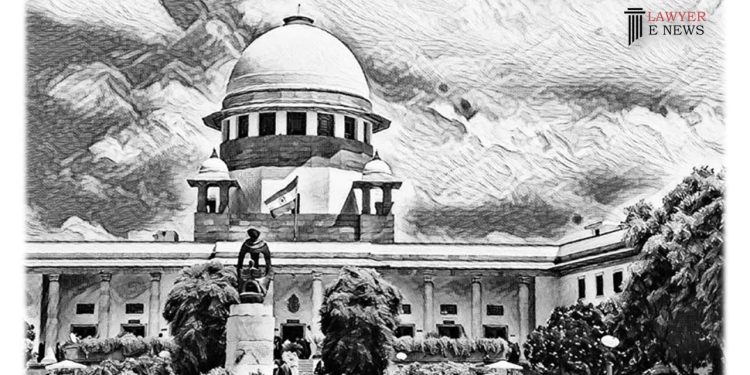-
by Admin
16 February 2026 3:53 AM



In a significant judgement on April 20, 2023, the Supreme Court of India has directed the constitution of Grievance Redressal Committees (GRC) at different levels for redressal of grievances of Advocates/Bar Associations. The application had been filed by the Bar Council of India, which suggested various measures for controlling illegal and unreasonable strikes and boycotts by the advocates. The Council also proposed a mechanism for redressal of grievances of Advocates/Bar Associations at all levels.
Shri Manan Kumar Mishra, learned Senior Advocate and Chairman of the Bar Council of India, submitted that the Bar Council is of the firm view and opinion that the illegal and unreasonable strikes and boycott are always bad and the Bar Councils can never approve or encourage such practices. However, the Bar Council of India and all the representatives of the lawyers were of the unanimous opinion that there should be a grievance redressal mechanism available to Advocates at all levels from the Talukas/Muffasils/District Courts, High Courts where the members of the Bar could vent their grievances.
The Supreme Court, while hearing the application, reiterated that no member of the Bar can go on strike and/or abstain himself from court working. The Court emphasized that if the member of the Bar has any genuine grievance or difficulty being faced, they can make a representation and it is appropriate that their genuine grievances are considered by some forum so that such strikes can be avoided.
Supreme Court directed all the High Courts to constitute Grievance Redressal Committee in their respective High Courts which may be headed by the Chief Justice and such a grievance redressal committee be consisting of two other senior Judges, one each from service and one from the Bar to be nominated by the Chief Justice as well as the Advocate General, Chairman of the Bar Council of the State and President of the High Court Bar Association. The High Court may also consider to constitute the similar Grievance Redressal Committee at the District Court level.
The Court observed that the Grievance Redressal Committee may consider the genuine grievance related to the difference of opinion or dissatisfaction because of procedural changes in filing/listing of the matters of the respective High Courts or any District Courts in their respective States and any genuine grievance pertaining to misbehave of any member of the lower judiciary, provided such grievance must be genuine and not to keep the pressure on any judicial officer.
The Registry has been directed to send the copies of this order to Registrar General of all the High Courts for further steps in terms of the present order. This judgement is likely to have a significant impact on the functioning of the judiciary in India, as it seeks to provide a mechanism for redressal of grievances of Advocates/Bar Associations and reduce the incidents of strikes and boycotts.
District Bar Association Dehradun Vs Ishwar Shandilya & Ors.
